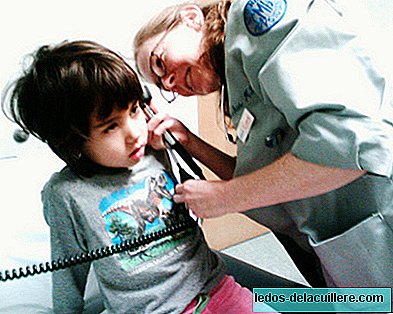
The rifirrafe between Queens has put on the table the issue of rivalry between grandmothers. It seems that while Queen Sofia sees the infants Leonor and Sofia little, the maternal grandmother, Paloma Rocasolano, has full access to the Zarzuela and even sleeps when the Kings are traveling.
We talk about the preference of one grandmother over the other, something that happens in many families, and we ask ourselves: Do children prefer maternal grandmothers over paternal ones? What are the reasons?
The maternal grandmother, the favorite
The claim of paternal grandmothers is not just a matter of perception. There are studies that guarantee that the maternal grandmother wins (by win) in the ranking of affections of the little ones, followed by the paternal grandmother, the maternal grandfather, and the poor paternal grandfather, who occupies the last place.
Maternal grandmothers, in general, are more involved in childcare and here, the key element is the mother.
The matrilineal advantage
Women generally have closer ties with our parents than with our political family (and our partners with their own parents), which leads to closer relationships between children and maternal grandparents. It's what experts call matrilinear advantage. This is described by psychologist Karen Fingerman here:
"Mother-daughter dyads have more frequent phone contacts, more emotional support and advice, more than mothers with sons or fathers with daughters. They are also more concerned with maintaining contact with family members, sharing news, planning holiday meetings ...".
In addition, as childcare continues to fall more on us, in the end we "throw" more of them to help us with the children. In the same way it is common that maternal grandparents can give their opinions about raising children more calmly than paternal grandparents, who are afraid of generating tensions with the mother of their grandchildren.
Other motives
Of course, the matrilineal advantage is not the only aspect to take into account when assessing the preferences of grandchildren. There are other determining factors included in a report from the Complutense University of Madrid:
The geographical proximity: It is common sense that the closer grandparents live to grandchildren, the more times they will see and share activities together and the closer their relationship will be. In this, the gender role also plays an important role: in Spain, two-thirds of adult children live near their parents and if you are a woman, more chances of having your mother as a neighbor.
Age: The relationship changes greatly depending on age, health and energy level. Active and agile grandparents become the best playmate of the little ones and obviously climb positions in the ranking from "coolest grandpa in the park," as the ad says.
The relationship we have with our parents: If we have a good relationship with our parents and consider that they have done a good job with our education, we will logically consider them a positive influence for our children and want them to spend a lot of time with them. However, in cases where parents do not get along with their parents, relationships with grandchildren often suffer.
And what about the sons and their sons?
Well, basically, depending on how you get along with your daughter-in-law, this will be the relationship with your grandchildren. The main complaints of the grandmothers is that they cannot see their grandchildren as much as they would like and among the daughters-in-law it is common to consider that the paternal grandmother gets too much into the life of the family or that does not respect the form of parenting that parents have chosen.
In the end, the relationship can gradually become thinner and reach situations like the one that has been experienced in the royal family this week. What is clear is that the benefits of the relationship between grandparents and grandchildren are so many that it is worth doing everything possible for children to be in contact with all their grandparents.












